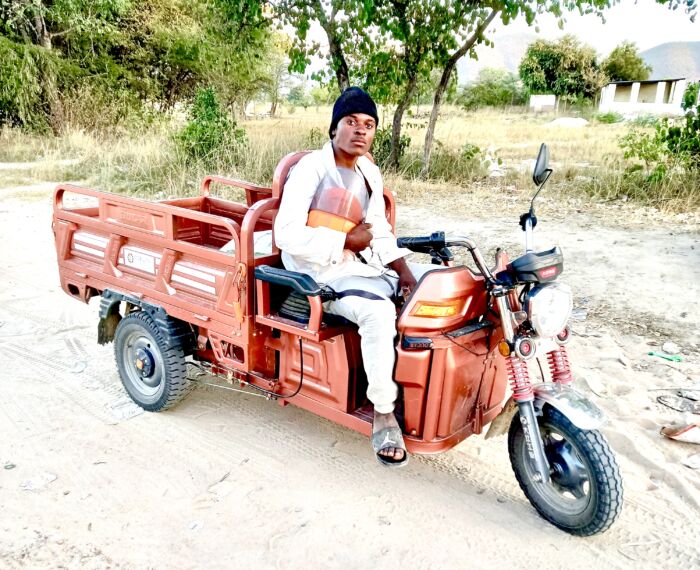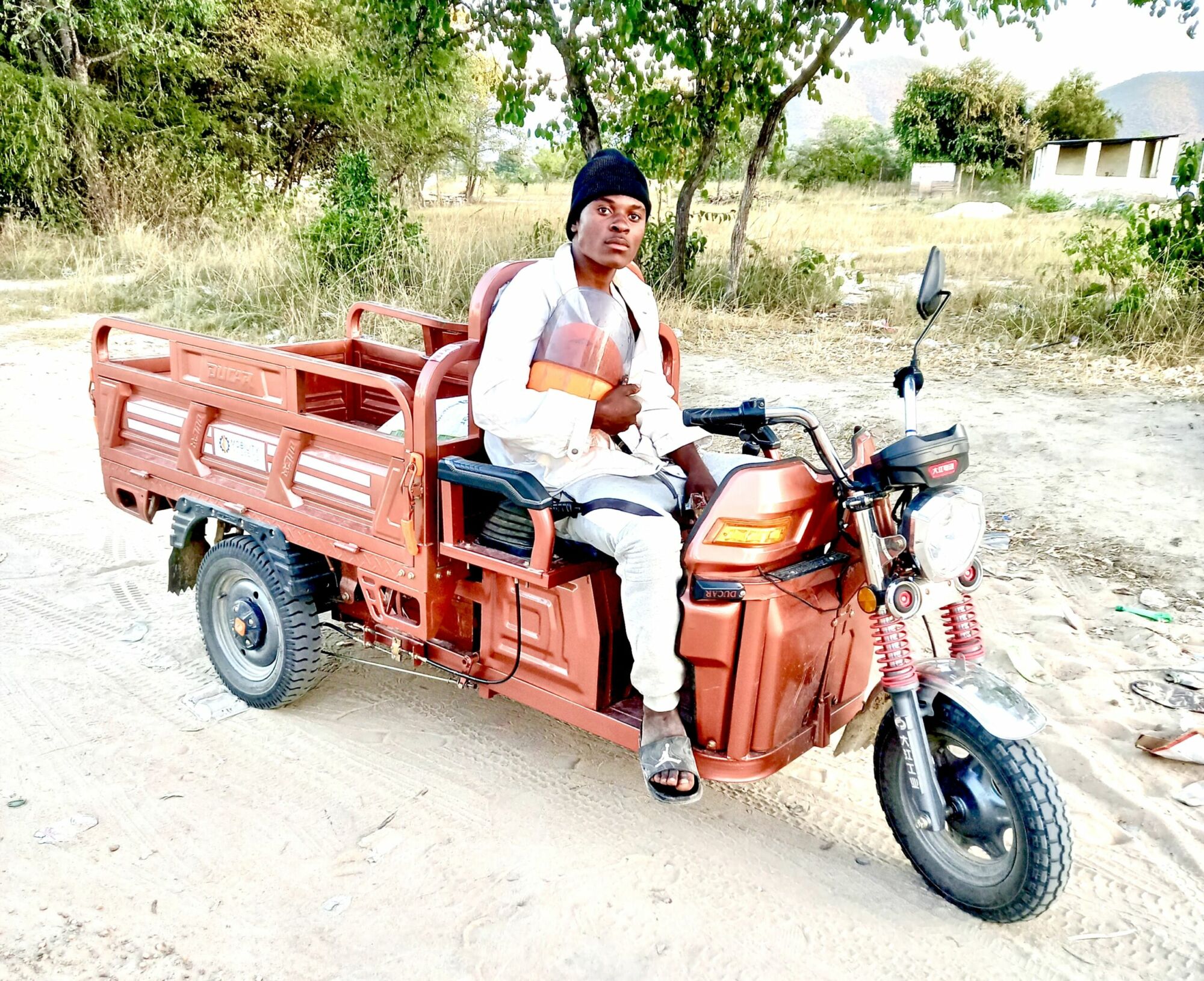Cynara Milk Collection Centre in Mutasa District bears testimony to multiple dairy value chain actors and stakeholder efforts to carve out space for smallholder farmers especially women and young people to enter and thrive as dairy farmers, a field predominantly dominated by men. Like most dairy farmers who are located a fair distance from especially input markets, lowering these costs becomes key to increasing profit margins.
“Before the IMoved project, we struggled with high costs and limited access to essential supplies. Now, with the support of private sector partnerships, we can access quality feed and veterinary drugs right in our community, saving us time and money.” – Margaret Kusano a farmer at Cynara Dairy Hub. Prior to the interventions, Cynara MCC members had to procure their stock feed and veterinary drugs from Mutare, which is 25kms away, incurring huge transport costs and time away from the farm. For those farmers who had limited capacities they resorted to indigenous methods to treat their cows and to cut costs, often being exposed to counterfeit compromised products from fly-by night unregulated animal health service providers that often sell expired drugs. As a raw milk bulking centre, Cynara MCC, would go through periods when deliveries of milk would be low affecting standing agreements with financial players and off-taker in servicing outstanding financial obligations and meet the running costs for the centre.

To work through all this, the iMoved Project prioritized graduating Cynara MCC into a dairy hub that would offer multiple services to its members besides just aggregating milk. This approach would also sustain the centre as other related running costs would be contained by extending critical services to its dairy farmers. The graduation process involved identification of critical services required by the members and facilitating the private sector to decentralise these to the MCC. Therefore, Cynara was supported through the project to establish (1) a 10MT feed revolving shop (2) A vet drug revolving shop, (3) tricycle transport services. This then led to the development of agreements between the service providers and the ZADF representing the dairy farmers in some instances or the respective committee directly. The signing of agreements with private sector actors like Feedmix on stockfeed, Coopers on veterinary drugs, Mobility for Africa on transportation and logistics increased services at the dairy hub.
Some of the agreements meant triggering the matching grant facility for the first round of 5 tonnes of stock feed with Dairiboard Zimbabwe guaranteeing the other half. With Coopers, a USD500.00 vet drugs consignment stock strengthened the partnership and led to the training of vet shop keeper who will be providing extension and additionally the fortnightly support visits from the Coopers Vet Doctors.
Transport services were kickstarted with a tricycle worth $2, 700 purchased for Cynara as a grant by the project. “The introduction of transport services has been a game-changer for us. Now, we can efficiently deliver our milk and receive supplies, allowing us to focus more on our dairy farming activities and less on logistics,” says Stephen Piwa another farmer benefiting from the project. The tricycle is being used by the members to deliver milk to the MCC and the return trips deliver stock feed and veterinary drugs to the farmer homesteads at a fee of $1 per trip. The MCC members have not limited tricycle hire to members only but also hire out to none members at $2 per trip. Expanding the transport and logistics benefits to the Cynara community, the project engaged Mobility for Africa (MFA) which then targeted three trained riders with e-tricycles (1 male youth and 2 female youth) under a lease-to-purchase model servicing Cynara dairy farmers as well as other 2, 061 households in ward 23 of Mutasa district.
Dairy farmers now have a reliable transport service for their milk, feed and other agricultural produce to and from the market. This partnership also came with other benefits like rider’s training course, trained mechanical team on stand-by to support repairs and maintenance, employment creation for the youths with entrepreneurial business skills, time saving for women and girls. E-tricycle riders are grossing an average of $330/month to MFA and taking home on average of usd$100 which is 30% of the total income generated. The MFA balance goes towards battery swaps of which swapping is being done every other day on average.
Before graduation in October 2023, Cynara MCC was only a milk bulking centre receiving 90 litres per day from 10 farmers for onward sell to the off taker Dairibord Zimbabwe Ltd (DZL). Cynara as a dairy hub which is now a one stop shop for service provision and has stimulated increase in milk intake and now receives 270litres per day from 14 farmers. This is attributable to efficient transport and logistics interventions as well as improved access to feed and drugs which in turn has increased productivity per cow per day. Increased margins have been achieved as prior to the intervention, a bag of feed would be charged transport $2 (in two vehicles) from Mutare to Cynara and an additional transport cost of $2 for the farmer bringing the total cost saving to $4. There is also a reduction in time spent purchasing feed which is now being allocated to production and other household chores. From inception of the facility in November 2023, 26 farmers have procured feed from the stock feed revolving fund facility and 8 farmers have procured veterinary drugs from the revolving facility.
The Cynara Feed Shop stock (left) and Lawrence from Cynara (right), Mutasa District one of the youth beneficiaries from the partnership with Mobility For Africa.
The remarkable lessons learned at Cynara Dairy Hub serve as an example of success, inspiring the expansion of similar interventions across other designated project Milk Collection Centers (MCCs) in 2024. Through strategic partnerships with the private sector, significant progress has been made in enhancing financial services, optimizing input and output markets, ensuring timely extension services, securing off-taker agreements, facilitating value chain financing, and providing essential backup support through the provision of machinery and equipment. These collaborative efforts have not only created better-paying markets but have also fostered a conducive environment for increased incomes and employment opportunities within the dairy sector.
The iMoved Project and its partners have been confidently chipping away at these challenges and demonstrating that smallholders with the proper support can thrive and participate meaningfully leading to increased incomes.
